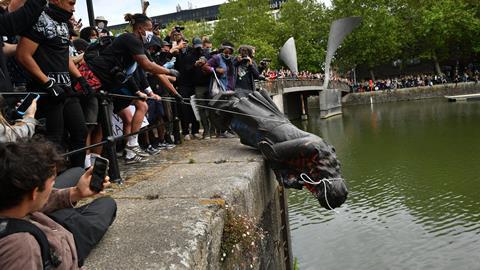The Court of Appeal has been asked to consider how judges should direct juries in criminal cases brought against protesters following the acquittal of four people for pulling down the statue of Bristol slave-trader Edward Colston. Announcing that she had referred the case today, the attorney general, Suella Braverman QC MP, said the case has led to uncertainty about the offence of criminal damage and the right to peaceful protest.
The Court of Appeal has no power to overturn the acquittals.
Braverman’s decision coincides with the publication by thinktank Policy Exchange of a report by a former Old Bailey judge raising questions about the conduct of the trial. In the report, Charles Wide QC says the jury’s verdicts were not ‘perverse’ based on the evidence admitted in the case. However he said that the defences invoked - reasonable force to prevent crime and that conviction would have been a disproportionate interference with human rights - should not have been left to a jury.
Criticising the case management of the trial, he said that all parties have a responsibility to ensure that such hearings are conducted according to the criminal procedure rules. ’With the state of the law as it is, or may be, the conduct of such trials is fraught with manifold difficulties.’
Announcing her referral of the case, Braverman said: 'Trial by jury is an important guardian of liberty and critical to that are the legal directions given to the jury. It is in the public interest to clarify the points of law raised in these cases for the future. This is a legal matter which is separate from the politics of the case involved.'
The attorney general's office said that the power to refer criminal cases has been used 19 times since 2000; the last time in December 2020 to clarify the law in relation to sexual assault.
This article is now closed for comment.




























13 Readers' comments